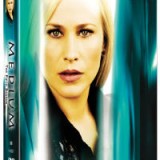Superconscious Perceptions: The Nature of Intuition
Intuition is an interesting function of what some think of as the superconscious portion of the mind. This is the part of the mind which appears to have access to all the subliminal impressions which we receive, and is able to integrate them in a fashion which is different from ordinary, linear thought. Additionally, the superconscious appears to include perceptions normally outside the range of our ordinary, waking consciousness. These perceptions can go by the names of “hunches”, “gut feelings”, or “ESP”. In no way has this function been fully defined by science, or in my opinion, anywhere else.
Frequently, new levels of intuition open up for us, induced by stress, spiritual practices or simple necessity. Depending upon the circumstances involved, this can be a momentous event. When this occurs, new perceptions become available to us, some of which can be confusing. In my experience as a counselor, there can be a fine line between this opening of intuition and the onset of neurosis. This is due to the fact that it is often stress or extreme necessity which brings up the new perceptions.
Frequently, the application of simple grounding techniques will stabilize the perceptions and bring greater peace to the soul, without sacrifice of valuable insights. Very often, an individual who is troubled by these new perceptions of life, will take the extreme of either denial of their existence, or denial of the existence of material reality. Neither of these options is particularly desirable. The difficulty of course, is the apparent schism between logical, material reality and “unsubstantiated” intuition.
There is an apparent “Quantum Leap” between the normal consciousness and intuition. Some people experience this as a “You can’t get there from here” phenomenon, wherein the conclusions drawn from intuitive resources don’t appear to fit the process of logic. Well, that’s because they don’t. Heavy duty materialists object to knowledge without logic as a form of heresy, and may take personal offense. However, the knowledge still exists. Denial doesn’t change that.
Again, under stressful conditions, it may be comforting emotionally to disregard material facts, and actively fantasize what we would like to perceive, as being less painful. This is natural and human, and even healing up to a point. But if our world is falling down around our ears, it’s not in our best interests to ignore it. Oddly enough, even this can strengthen our true intutive abilities though, so something is still gained.
Intuition is most reliable when our perceptions reveal something new to us in a calm, centered state. In fact, it’s not uncommon for the intuitive process to reveal itself through our dreams. This is often when the superconscious does it’s best work. Unfettered by linear thinking, images and situations can present themselves in new patterns, much like fitting a puzzle together in a new way. Certain forms of meditation work in a similar fashion. When the mind is allowed to relax, without focus on a particular thought, not denying any thoughts, but simply letting thoughts go by as if one were a detached observer, frequently new insights arise. Again, the puzzle of mind is rearranging itself in a new form.
I’ve done a lot of work with people in spiritual crisis. Amazingly often the crisis is instigated by the intuitive faculties presenting themselves in an unexpected fashion. They may be faced with the question of what is real and what isn’t. I’ve often felt that the exploration of the territory of intuition is like walking through uncharted territory with a blindfold on. We often only see part of the picture, or may have to “feel our way” through. In my opinion, the only danger is to assume that we know more about what’s occurring than we actually do.
For instance:
About a year and 1/2 ago when we were considering moving to a larger home, I had a strong vision of being in a kitchen, gazing at a large, framed “pass through” in the wal l above the sink, leading into the dining room. I could have drawn several conclusions about the vision, giving it great spiritual import, taking it as a dire omen, or any number of other things. Since I’ve had experience with this, I just let it go after mentioning it to my partner. About 6 months later, I was standing in that position in front of the sink and remembered the vision. It was interesting to get the confirmation of my perception, but it still didn’t appear to be particularly relevant to my life. Now, a year later, I spend most of my day in front of that hole in the wall. We converted the dining room to an office, and with the monitor facing the hole, I see through the hole to the living room to watch TV as I work, and look out the living room picture window as well. It’s a significant part of my daily life.
The point here is to accept our perceptions, without additions. The calm viewing of our experience is far more constructive than denying it, being afraid of it, or even making more of it than there is. Isn’t the fact of opening up the new vistas for intuitive connection to our superconscious exciting enough?






